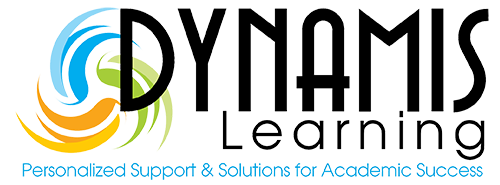 Does your child struggle in reading class? Does he come home consistently with only half his homework written down? Does it take him all night to do his homework, and even then it’s sloppy and only halfway finished? Is he really a bright boy and can recite facts about his favorite dinosaurs all day long, but struggles when he has to read about them? And finally, is he starting to make up excuses why he can’t go to school and his grades are dropping, not only in reading but maybe in some of his better subjects as well?
Does your child struggle in reading class? Does he come home consistently with only half his homework written down? Does it take him all night to do his homework, and even then it’s sloppy and only halfway finished? Is he really a bright boy and can recite facts about his favorite dinosaurs all day long, but struggles when he has to read about them? And finally, is he starting to make up excuses why he can’t go to school and his grades are dropping, not only in reading but maybe in some of his better subjects as well?
If any of this rings true, it might not be entirely his fault. He could be suffering from a language based learning disability just like 1 out of 5 students in the United States. He could have dyslexia.
Dyslexia is the most common of the language based learning disabilities. In fact, research suggests that 70-80% of children who do poorly in reading may suffer from it. We’ve heard of it before, but are still a bit confused as to what it entails. Think about it this way, reading is a learned skill. We are not born knowing how to read. Reading involves making connections inside your brain with letters and sounds. Sometimes, these connections can get jumbled and take longer to untangle. This is a simplified definition of dyslexia. One common myth about dyslexia is that it can be outgrown. Not true. Also, it isn’t rare, as our previous statistics show. And it doesn’t mean you’re not smart. Quite the contrary, most people with dyslexia are very smart and have normal, healthy brains.
What it does mean is that you will struggle learning how to read. But, there is some good news. The younger a student is diagnosed with Dsylexia, What is Dsylexia,dyslexia, the better. In fact, there are lots of strategies available to help you cope. One ground-breaking Yale University study shows that students who receive intensive help with spelling, comprehension, vocabulary and decoding skills early on, can go on to become good readers. The key to overcoming the challenges associated with dyslexia are early and rigorous interventions at both the home and professional levels.
you cope. One ground-breaking Yale University study shows that students who receive intensive help with spelling, comprehension, vocabulary and decoding skills early on, can go on to become good readers. The key to overcoming the challenges associated with dyslexia are early and rigorous interventions at both the home and professional levels.
Mom and Dad, there is more good news! There are lots of things you can do to help your child. First, you will need to get your child seen by a speech and language pathologist for testing. If dyslexia is suspected, make sure they are being instructed using a strong phonics-based reading system. If your school doesn’t provide this, there are numerous tutoring services that do. Next, make sure your child does their work in a quiet place, whether at home or school. You can talk to your child’s teacher and determine ways to minimize distractions during the school day. Allow your child to listen to a reading selection out loud, as it is being read. There are many book selections available that are accompanied by CDs. Also, allow your child to complete some of his/her work on a keyboard, which provides them added visual support. Finally, make sure your child is allowed extra time to finish their work. If you have a medical diagnosis, you can look into a 504 plan in a public school setting.
Know this, your child is in some pretty good company. Some of the greatest minds in history suffered from dyslexia, yet went on to make important contributions to society. Thomas Edison was one of them. One of his most famous quotes sums it up pretty well. “Everybody is a genius, but if you judge a fish by its ability to climb a tree, it will live its whole life believing that it is stupid.”
Reach out to Helen Panos, CEO/Founder of Dynamis Learning Academy, so we can discuss the struggles you have seen your child experiencing this semester. Contact helen@dynamislearningacademy.com or via 770-282-9931.
